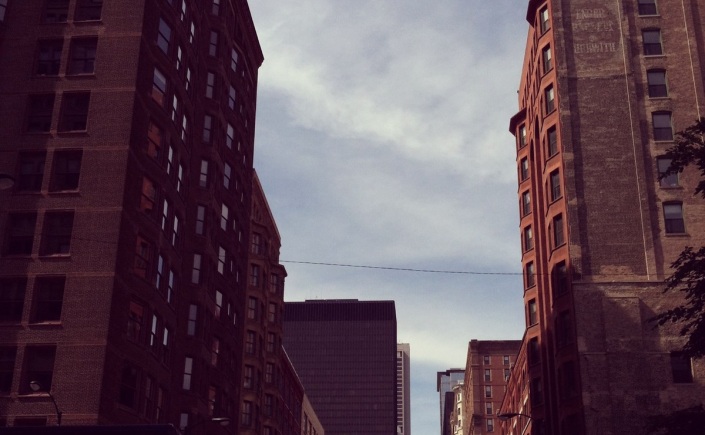Last week we kicked off our three part series on the refugee housing crisis in Chicago. If you missed it, go back and read our first post on Refugee Housing 101.
This week we’ll discuss the underlying reasons for the current refugee housing crisis in Chicago. As we’ll see, Chicago’s refugees are adversely affected by housing issues at the national and local levels. They also face housing challenges unique to refugees as a group.
Lack of affordable housing nationwide
Since the Great Recession, stagnating wages and increasing housing costs have created a housing crisis for many low and middle income Americans. Additionally, tighter credit standards have made it much more difficult to get a mortgage, meaning many Americans must delay purchasing their first home. As a result, many low and middle income residents occupy rental housing, decreasing the supply of rental units.
As the Urban Institute notes, the supply of housing in the United States is also low because residential construction slowed significantly in most regions after the housing bubble burst in 2008. Even when there is new construction, most of it “targets upper-income renters and owners,” even though “the lack of affordable stock is already at crisis levels.”
Affordable housing in Chicago
A household is generally considered “rent-burdened” if it spends more than 30% of its income on housing. According to a recent study by the MacArthur Foundation, 48% of adults in Chicago spend more than a third of their income on housing compared to 31% of adults nationwide. Clearly, the proportion of rent-burdened households in Chicago is higher than the national average.
In addition to the nationwide housing trends discussed above, the rise of gentrification, an insufficient number of Chicago Housing Authority public housing units, and a dwindling number of single resident occupancy buildings are contributing to Chicago’s affordable housing crisis.
Refugees & affordable housing
Finally, refugees as a group face an additional layer of difficulty finding housing in a city like Chicago. Because a refugee resettlement agency like World Relief generally only has about two weeks to find housing for a newly arriving refugee family or individual, they must find an adequate apartment within a very short amount of time.
In addition, many landlords will not rent to tenants without a credit history, while others are hesitant to rent to new refugees since they usually do not have a job when they first arrive in the United States.
Due to all these factors, finding affordable, quality housing for refugees in Chicago is one of the most pressing challenges facing case workers at World Relief this summer. Stay tuned for our final post on the topic next week.
HOW CAN YOU HELP?
VOLUNTEER || If you’re interested in volunteering in the area of housing with World Relief Chicago, learn more and fill out an application at worldreliefchicago.org
HAVE A HOUSING LEAD? || If you are a landlord or know a landlord who may be interested in renting an apartment to a refugee family in Chicago, please email chicago@wr.org
GIVE || A tax-deductible gift to World Relief Chicago increases our capacity to tackle challenging issues like finding affordable housing for our refugee clients. Donate online here.


There are additional housing issues that you fail to mention, which are that sometimes the refugees do not know the “rules” of living in a mixed apartment building with paying tenants. I know people living in a building where World Relief leases apartments specifically for refugees and it has not gone well. One refugee family ruined the washing machines in the common laundry facility, inconveniencing the paying tenants for weeks until new machines could be installed, and there are now sewer issues in the building. A few months ago, this refugee family was leaving the hot water running all day long, draining the hot water heater so the other residents had no hot water for days. Many paying tenants have moved out of the building because of these inconveniences. As an organization, you need to be respectful of the paying tenants when you place refugees in a mixed building. Situations like this will also discourage landlords from renting to organizations like World Relief because of the damage done to their buildings and the problems it creates for them with their paying tenants, who are justifiably ticked off.
LikeLike
Thanks for your comment! Learning how to adapt to life in the close quarters of a Chicago apartment building is a challenge many refugees face. Our case workers provide an extensive orientation to recently arrived families which goes over the basics of keeping an apartment clean, where to take out garbage, how to do laundry, etc. However, there is a lot to cover and it can take a few tries for recently arrived refugee families to get the hang of apartment life. It’s often a very drastic change from the living conditions they’ve experienced both in their home countries and in refugee camps. Our goal at World Relief is to pair each arriving refugee family with a group of volunteers from the community who are willing to visit the new family about once a week. The volunteers are often able to help recently arrived refugees avoid frustrating outcomes like the ones you described. Thanks for bringing up this point and please know that resettlement agencies are aware of this particular challenge and that we’re doing our best to improve.
LikeLike